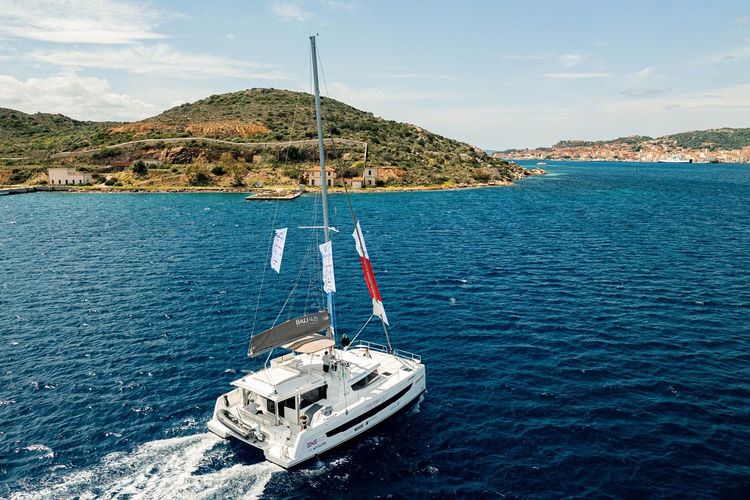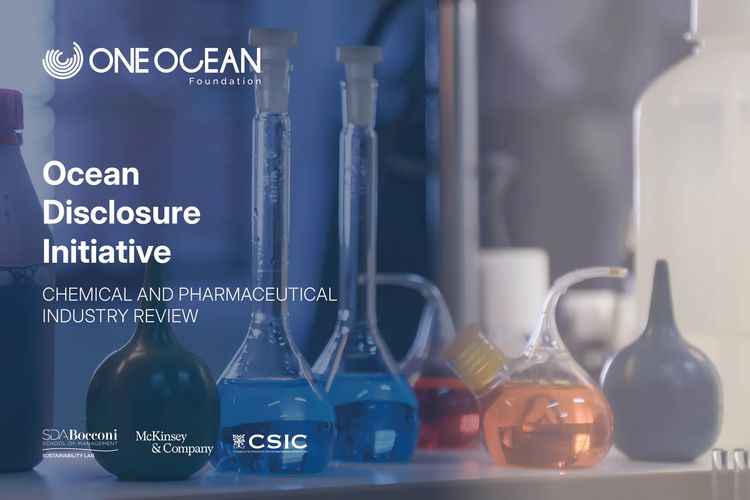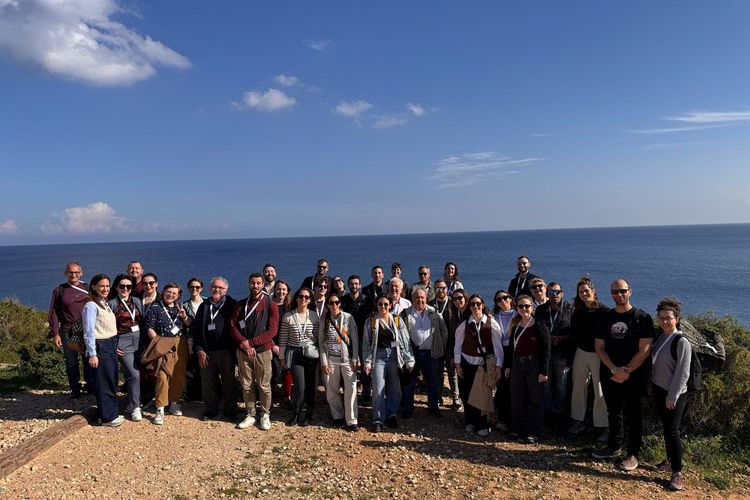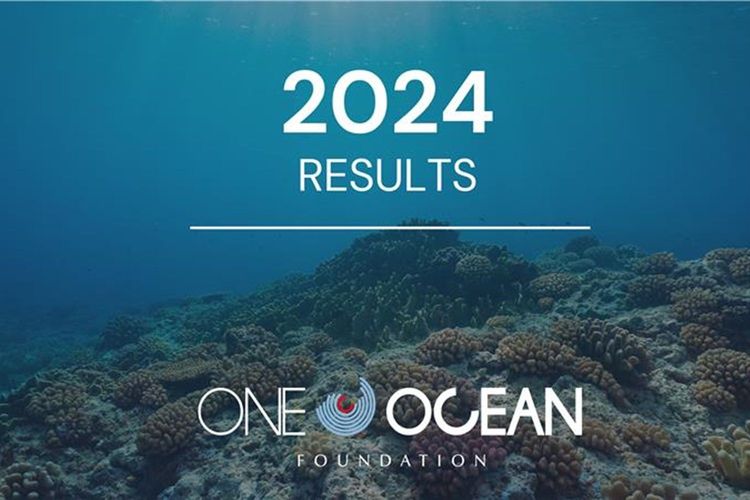
On Saturday, April 27th, the catamaran One, a 48-foot catamaran equipped as a 'scientific laboratory,' set sail from the shores of La Maddalena. It will host the crew of researchers and partners of Project M.A.R.E. 2024, an acronym for Marine Adventure for Research & Education, which combines seafaring practice, scientific research, and promotion for the safeguarding of the Mediterranean Sea.
One Ocean Foundation, as the scientific partner of Project M.A.R.E., will coordinate the scientific research of the initiative for the third consecutive year. This includes 10 weeks of navigation in the western Mediterranean Sea.
Starting today from La Maddalena and returning on July 6th, the Catamaran One will sail through the main marine protected areas of the Northwest Mediterranean and will dock every Saturday in May and June in the following order: Savona, Nice, Marseille, Port-Argelès, Barcelona, Ibiza, Menorca, Ajaccio, Santa Teresa di Gallura, as well as intermediate stops such as Porto Ferraio, Nice, Monte Carlo, Saint Tropez, and Menorca.
M.A.R.E. project
Over the course of three years, Project M.A.R.E. has gained international recognition due to the scientific results it has produced, which represent a unique achievement in the world of research related to the Mediterranean Sea. The numbers from the first two editions speak volumes about the significant work undertaken: nearly 3000 nautical miles sailed and around 200 guests on board. The studies conducted have become the subject of dissemination, scientific articles, and even thesis works, leaving a tangible and lasting legacy for future generations.
"We are extremely pleased to continue our collaboration with the CVC-Caprera Sailing Center ETS Foundation as scientific partners of the Project M.A.R.E. for the third consecutive year. From the outset, the One Ocean Foundation has strongly believed in this initiative, which represents an excellent synthesis of our mission: to promote education and awareness about the protection of the marine environment on one hand, and to expand high-impact monitoring and scientific research activities, particularly focused on the Mediterranean Sea, on the other," declares Riccardo Bonadeo, President of the One Ocean Foundation
2024 objectives
After studying and mapping the Tyrrhenian Sea in 2022 and the Adriatic Sea in 2023, this year’s research activities of the Foundation will focus on the sea area between Italy, France, and Spain. The 2024 mission has many points of continuity with the previous year but also introduces substantial new features: monitoring of acoustic pollution is added to the surveillance of chemical pollution and marine biodiversity. The scientific activity will be coordinated by Dr. Ginevra Boldrocchi, scientific coordinator of One Ocean Foundation and researcher at the University of Insubria.
To address the urgent need for long-term data on Mediterranean Sea contamination, this project sets out as its primary goal to provide the first comprehensive study on the contamination state of the Mediterranean Sea, offering the scientific community baseline data on various persistent chemical pollutants (such as DDT and PCBs) and trace contaminants (like arsenic, cadmium, and mercury, considered very dangerous due to their toxicity and ability to accumulate in living organisms) in zooplankton samples. Specifically, One Ocean Foundation aims to: 1) provide basic information on the current general contamination level in the Mediterranean basin; 2) assess possible trends over time in the levels of these contaminants; 3) determine the contamination status of the basin by comparing the levels measured in this study with those of other areas of the world.
The second objective is to contribute to the knowledge and conservation of marine biodiversity, providing a map of the presence and distribution of cryptic species – both threatened species and those still little known, like the monk seal – using techniques such as environmental DNA (eDNA).
Furthermore, the project will assess acoustic pollution using passive acoustics as a monitoring methodology. The increase in urbanization and the development of maritime industries have led to the emergence of a new form of pollution called “acoustic pollution”. This pollution exerts increasing pressure on many marine species, including cetaceans, but also fish and invertebrates, because underwater noise interferes with the fundamental vital functions of many animals and can have a range of negative effects such as temporary or permanent hearing loss, behavioral and physiological changes, masking of other sounds, injuries, and even death.
The importance of awareness and education activities
Additional goals include a commitment to Awareness and Advocacy through events and dissemination activities and the promotion of the importance of scientific research, offering an open and free research platform to researchers, students, and institutions, aiming, more than in the previous edition, to open its doors to the international scientific community, turning into a platform for researchers from 9 European research centers and universities who will alternate, with the goal of publishing scientific articles in peer-reviewed international journals and developing theses related to the project.
One Ocean Foundation is not only committed to scientific research but also aims to be a platform for accelerating a sustainable transition through education on the most significant environmental issues involving marine ecosystems. Through projects, events, and the development of educational materials, the goal is to actively involve individuals, institutions, and companies in adopting more sustainable practices.


